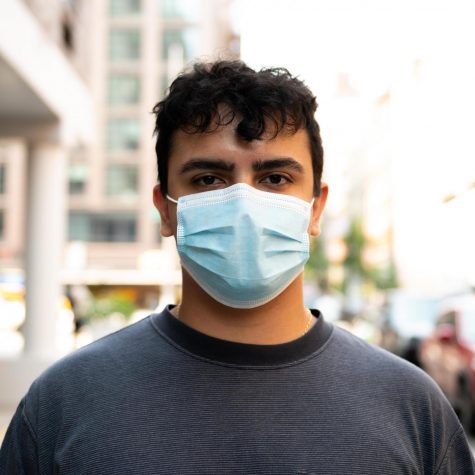The Soapbox: Philippines, European migrant pushbacks, Beirut
The Soapbox is a weekly column by WSN’s news desk, examining the major developments in world news and rounding up the stories we think are worth the read this week. Global consciousness for a global university.
The Soapbox is a weekly news column rounding up stories worth reading for a global university. (Staff Illustration by Susan Behrends Valenzuela)
October 15, 2021
In the Philippines, an alarming twist in the presidential race
Although observers of the 2022 Philippine presidential elections expected Sara Duterte, the daughter of incumbent president Rodrigo Duterte, to run for her father’s seat, it now appears that Sen. Ronald “Bato” dela Rosa will become the new leader of Duterte’s PDP-Laban party.
Dela Rosa filed his bid for the presidency at the eleventh hour, saying he was surprised that he was chosen by Energy Secretary Alfonso Cusi to be PDP-Laban’s 2022 presidential candidate, as Rappler reported on Oct. 11.
Rodrigo Duterte announced on Oct. 2 that he would retire from politics and not seek re-election in 2022. Now, dela Rosa, a longtime Duterte ally and key figure in the government’s so-called war on drugs, is poised to continue Duterte’s controversial legacy, alarming human rights advocates. When Duterte hand-picked him to serve as the Philippines’ National Police Chief in May 2016, dela Rosa reportedly warned criminals, “not only will we crush you; we will bury you.”
By August of that year, dela Rosa admitted that Philippine police forces had killed more than 700 suspected drug users and dealers in under two months. The International Criminal Court estimates that between 12,000 and 30,000 Filipinos have been killed in the war on drugs, which is now the subject of a mass murder investigation before the court.
In the European Union, a “violent shadow army”
Ten European news outlets published the results of a joint investigation on Oct. 6 revealing that paramilitary units in Croatia, Romania and Greece — some of which are funded by the European Union — are conducting secret, coordinated operations to prevent migrants from crossing their borders. Croatian border police have beaten migrants in the forest, and the Greek coast guard has forced migrants far into the Aegean Sea, according to the investigation. The United Nations said on Oct. 8 that the incidents documented in the report were likely illegal under EU and international laws.
The 10 news outlets, led by investigative outfit Lighthouse Reports, spent months reviewing videos, documents and satellite imagery from the EU’s borders. They corroborated their findings in interviews with dozens of officials and eyewitnesses.
“What emerges is the most detailed picture yet of a previously deniable campaign of illegal, violent pushbacks in Croatia, Greece and Romania by masked men whose uniforms have been stripped of any identifying details,” Lighthouse Reports wrote.
German news website Der Spiegel collaborated on the investigation to illuminate what it calls “Europe’s violent shadow army.” Video obtained by the news site shows masked men blocking Afghan and Pakistani asylum seekers as they try to cross the Bosnia-Herzegovina border into Croatia, beating them with a baton and yelling, “Go to Bosnia!”
Though the men on the Croatian side removed all identifying insignias, they were armed with equipment and tactical uniforms matching those used by the Croatian Intervention Police, a unit under the command of the country’s interior ministry.
On Oct. 7, the executive branch of the EU called for a probe into elite Greek and Croatian police and coast guard units accused of the pushbacks, describing some of the incidents detailed in the report as “shocking.”
In Beirut, no justice and no peace more than a year after the deadly port blast
Heavy gunfire rang through Lebanon’s capital Thursday morning as a march on the Palace of Justice — the city’s main court building — devolved into deadly fighting that left at least six dead and more than 30 injured.
Hezbollah and Amal, the most prominent Shiite parties in Lebanon’s parliament, called for Thursday’s protest to demand the ouster of Tarek Bitar, the lead judge investigating last year’s massive blast at Beirut’s port that killed as many as 252 people. Hezbollah and its allies have repeatedly accused Bitar of being biased against them in his investigation of the explosion.
“To some of those seeking truth and justice after the deadly port blast, the 47-year-old is a white knight fighting a desperate and lonely battle against a corrupt and criminal elite,” a France24 analyst reported. “For part of the establishment and its supporters, Bitar is politically biased and the biggest threat to the status quo since a wave of protests against the ruling class in 2019.”
Fighting broke out on Thursday morning when anti-Bitar demonstrators chanting “Shia, Shia” reached the Tayouneh neighborhood near the Palace of Justice — once a front line between sectarian fighters in Lebanon’s civil war, which began in 1975 and lasted 15 years. Video uploaded to Twitter shows protesters throwing rocks at a shooter on the street. Snipers in high-rise buildings reportedly shot at crowds in the street below. In footage captured by eyewitnesses and reporters, Shiite fighters could be seen responding to the unidentified snipers with semi-automatic rifles and rocket-propelled grenades.
“Essentially [Hezbollah and Amal] gave the Lebanese public a false choice between having stability without justice, or justice and no stability,” Aya Majzoub, a Lebanon researcher at Human Rights Watch, told Al Jazeera. “This is just the latest in a series of attempts by Hezbollah and the ruling elite to undermine and block the investigation into the Beirut blast.”
Earlier on Thursday, a Lebanese court had ruled against Bitar’s critics, ordering the judge’s investigation into the 2020 blast to resume despite a legal challenge brought against him by former ministers allied with Hezbollah and Amal. Because of persistent setbacks to the investigation, several high-ranking Lebanese officials have yet to be questioned regarding the disaster at the port.
Contact Suhail Gharaibeh at [email protected].

























































































































































